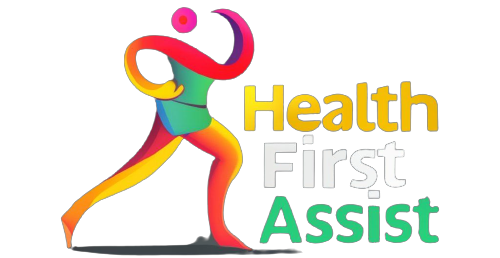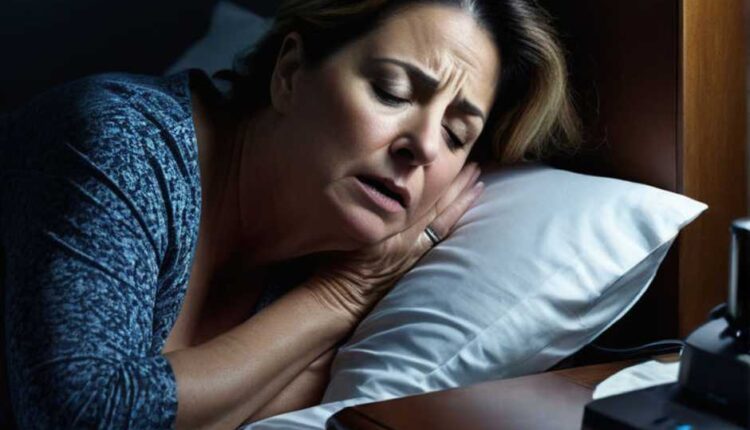Sleep Apnea – Recognizing the Symptoms for Better Health
Sleep is a vital component of overall health and well-being, yet many individuals struggle with sleep disorders that can profoundly impact their quality of life. One such condition is sleep apnea, a disorder characterized by intermittent pauses in breathing during sleep. While it may seem harmless at first glance, untreated sleep apnea can lead to a host of health issues, including fatigue, cognitive impairment, and an increased risk of cardiovascular problems.
In this article, we’ll explore the various symptoms of sleep apnea, equipping you with the knowledge to identify potential issues and take proactive steps towards better sleep, recovery, and overall performance.
Understanding Sleep Apnea
Sleep apnea is a sleep disorder that occurs when the upper airway becomes blocked repeatedly during sleep, causing breathing to intermittently stop and start. There are two main types of sleep apnea: obstructive sleep apnea (OSA) and central sleep apnea (CSA).
Obstructive sleep apnea is the more common form and is caused by a physical blockage or collapse of the upper airway during sleep. This blockage can be due to various factors, including excess weight, anatomical abnormalities, or relaxed throat muscles.
Central sleep apnea, on the other hand, is less common and occurs when the brain fails to send proper signals to the breathing muscles, resulting in temporary pauses in breathing.
Regardless of the type, sleep apnea can have severe consequences if left untreated. It can lead to disrupted sleep, excessive daytime sleepiness, and an increased risk of developing other health conditions, such as high blood pressure, heart disease, and stroke.
Symptoms of Sleep Apnea
Recognizing the symptoms of sleep apnea is crucial for seeking proper diagnosis and treatment. While some symptoms may be apparent to the individual, others may be more noticeable to their sleep partner or family members.
- Loud and persistent snoring: One of the most common and recognizable symptoms of sleep apnea is loud and persistent snoring. This occurs when the airway becomes partially obstructed, causing the soft tissues in the throat to vibrate.
- Gasping or choking during sleep: People with sleep apnea may experience episodes of gasping or choking during sleep as their body struggles to breathe.
- Excessive daytime sleepiness: Sleep apnea can lead to fragmented and poor-quality sleep, resulting in excessive daytime sleepiness, fatigue, and a lack of energy.
- Morning headaches: Disrupted sleep and low oxygen levels associated with sleep apnea can cause morning headaches or migraines.
- Dry mouth or sore throat: Due to the increased mouth breathing and snoring, individuals with sleep apnea may experience a dry mouth or sore throat upon waking.
- Cognitive impairment: Sleep apnea can affect cognitive function, leading to problems with concentration, memory, and decision-making.
- Mood changes or irritability: The lack of quality sleep and oxygen can contribute to mood swings, irritability, and even depression.
- Frequent night-time urination: Sleep apnea has been linked to an increased need to urinate during the night, which can further disrupt sleep patterns.
Sleep apnea is often underdiagnosed because many people don’t recognize the symptoms or attribute them to other factors. Recognizing the telltale signs is crucial for seeking proper treatment and improving overall health and well-being.
– Dr. Sarah Wilson, a sleep medicine specialist.
Diagnosing Sleep Apnea
If you suspect you may be experiencing symptoms of sleep apnea, it’s essential to consult with a healthcare professional for proper diagnosis. The diagnostic process typically involves the following steps:
- Medical history and physical examination: Your doctor will ask about your symptoms, medical history, and perform a physical examination to assess potential risk factors or underlying conditions contributing to sleep apnea.
- Sleep study (polysomnogram): A sleep study, also known as a polysomnogram, is the gold standard for diagnosing sleep apnea. During this test, you’ll spend a night in a sleep lab or at home with specialized monitoring equipment to measure your breathing patterns, oxygen levels, and sleep stages.
- Home sleep apnea test: In some cases, your doctor may recommend a home sleep apnea test, which involves wearing a portable monitoring device while you sleep in the comfort of your own home.
Once diagnosed, your healthcare provider will recommend the appropriate treatment options, which may include lifestyle modifications, continuous positive airway pressure (CPAP) therapy, oral appliances, or, in severe cases, surgical interventions.
Prioritizing Sleep for Recovery and Performance
Adequate and quality sleep is essential for physical and cognitive recovery, as well as optimal performance in various aspects of life. When sleep apnea disrupts the sleep cycle, it can have far-reaching consequences on overall health and well-being.
For athletes and individuals leading an active lifestyle, untreated sleep apnea can significantly hinder recovery and performance. Proper treatment can improve energy levels, reduce fatigue, and enhance overall physical and mental capabilities.
– Dr. Michael Thompson, a sports medicine physician, emphasizes the importance of addressing sleep apnea.
By recognizing the symptoms of sleep apnea and seeking appropriate treatment, individuals can experience improved sleep quality, increased energy levels, better cognitive function, and reduced risk of developing associated health conditions. This, in turn, can positively impact recovery from physical exertion, enhance athletic performance, and contribute to overall well-being.
Conclusion
Sleep apnea is a common yet often overlooked sleep disorder that can profoundly impact various aspects of health and well-being. By understanding the symptoms, such as loud snoring, gasping during sleep, excessive daytime sleepiness, and cognitive impairment, individuals can take proactive steps toward seeking proper diagnosis and treatment.
Prioritizing quality sleep and addressing sleep apnea is crucial for optimal recovery, performance, and overall health. With the right approach, individuals can overcome the challenges posed by this condition and experience the numerous benefits of restful, uninterrupted sleep.
Remember, sleep is a fundamental pillar of well-being, and by recognizing and addressing sleep apnea, you can pave the way for a healthier, more energized, and higher-performing version of yourself.
Related Topics
- How Much Water Should You Drink A Day? A Comprehensive Guide
- Dehydration Symptoms: 10 Signs You’re Not Drinking Enough Water
- Unlocking the Secret to a Slimming Body: Boosting Your Metabolism
- Tinnitus and Anxiety: Understanding the Connection and Finding Relief
- Hidradenitis Suppurativa: A Guide to Managing This Chronic Skin Condition
Cardio FLEX Reviews: Unveiling the Truth about Cardiovascular Health Support
Cortexi Reviews – Unveiling the Power of the Ultimate Nootropic Formula
Gluconite Review – A Comprehensive Analysis of Safety and Effectiveness
Ikaria Lean Belly Juice Reviews – The Ultimate Weight Loss Solution
Java Burn Reviews: A Revolutionary Approach to Boosting Metabolism
Liv Pure Reviews: to Achieve Your Weight Loss Goals
ProDentim Reviews: Solution for Dental and Gum Problems
Puravive Reviews: A Detailed Analysis of Discovering the Essence
Quietum Plus Reviews: Unlocking the Secrets to Optimal Ear Health and Clear Hearing
Sugar Defender Reviews: The Importance of Blood Sugar Management
Sumatra Slim Belly Tonic Reviews: Discover its Power for Healthy Weight Loss


[…] Sleep Apnea – Recognizing the Symptoms for Better Health […]
[…] Sleep Apnea – Recognizing the Symptoms for Better Health […]